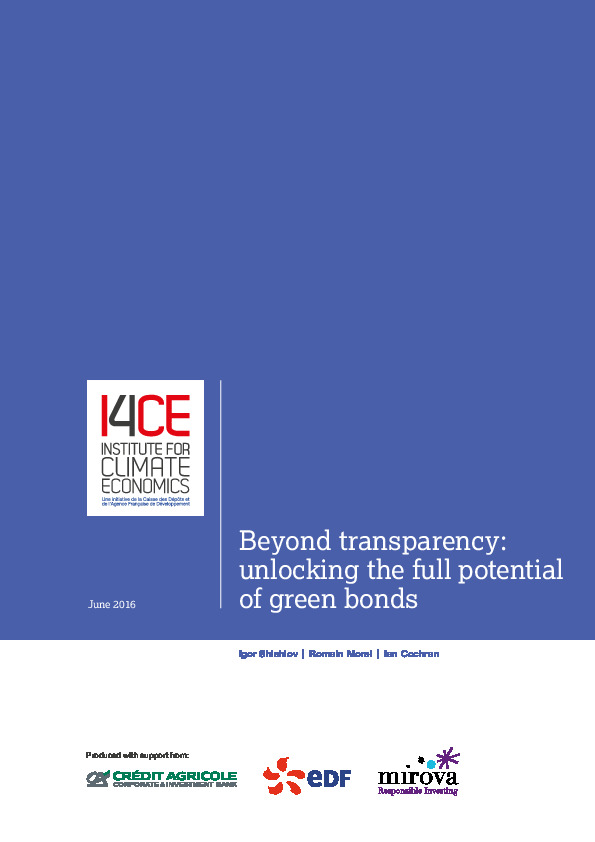Beyond transparency: unlocking the full potential of green bonds
This report presents the latest study on the green bond market written by I4CE – Institute for Climate Economics with support by Credit Agricole CIB, EDF and Mirova. ‘Green’ or ‘climate’ bonds are a new asset class that has received increasing attention over the past few years as a financial instrument that may help overcome the low-carbon investment challenge. This report explores the current and potential contribution of green bonds to the low-carbon transition and different ways to enhance it.
The analysis begins by taking stock of the current status of the green bond market, identifying key roles that the market plays for different stakeholders and pin-pointing two key challenges to be addressed. The first challenge – namely the question of environmental integrity of green bonds – explores the stakes related to definitions and procedures and identifies possible approaches to deal with it. The second challenge focuses on how, beyond increasing transparency, both market-driven and public support measures may help increase the tangible financial contribution of green bonds to the low-carbon transition. The report then concludes with a number of possible steps for policymakers and financial stakeholders to overcome the current limitations of green bonds.
